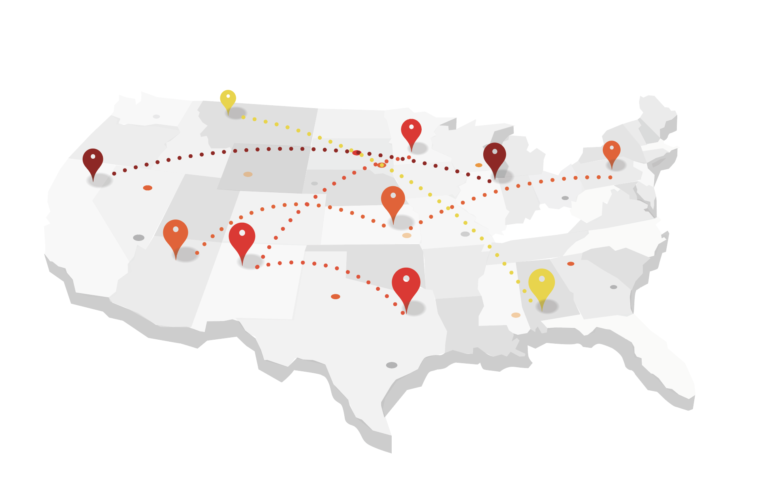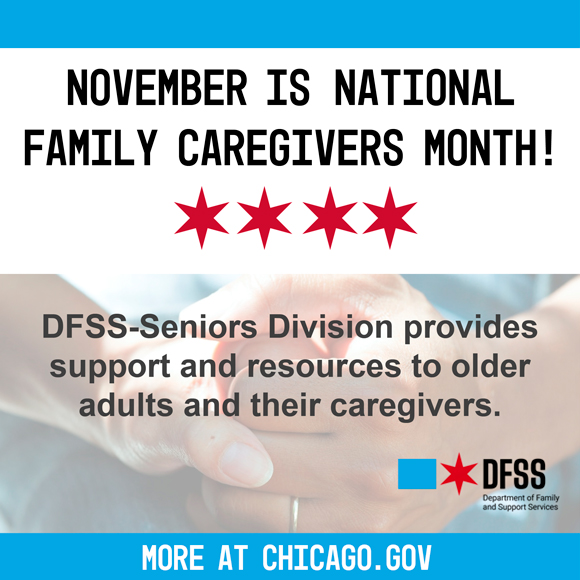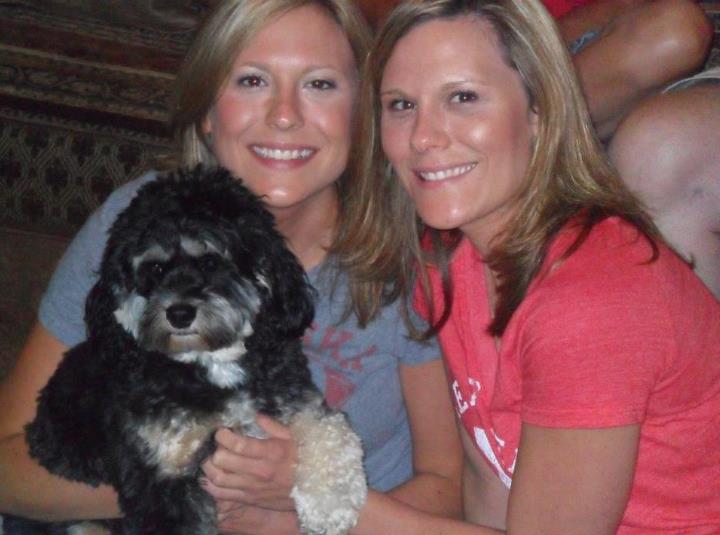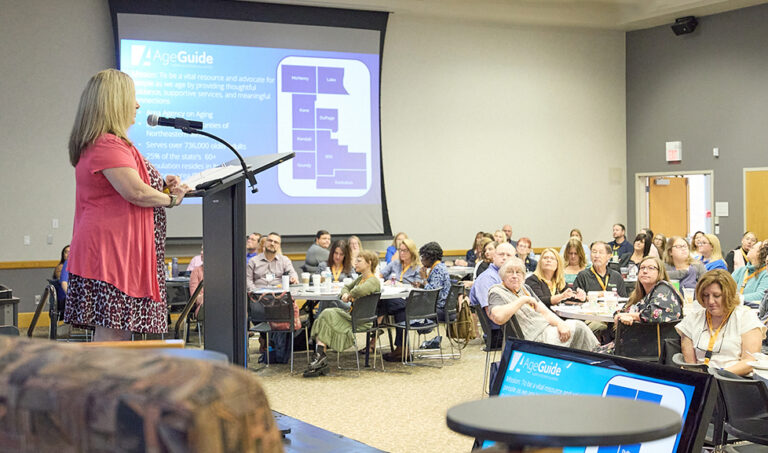
Claire lives in Evanston. Her health stories have also appeared in Chicago Health, the New York Times, the Atlantic and Runner’s World.
When adult children can’t be near their aging parent, advocates mind the gap
Tracy Lyons, 41, an Evanston native living in northern California, had to come up with some tricks to handle her father Richard’s affairs as his health deteriorated. While her younger sister handled local matters, Lyons took care of other aspects of his care from afar.
She resorted to identifying herself as “Richard Lyons” over the phone when wrangling his cell plan. She arranged for a social worker to check in on him, because she knew she couldn’t get him to go to a therapist.
Despite these hacks, Lyons realizes it would have been wise to hire professional help to assist with managing matters from across the country. After Richard Lyons died in December 2019, his daughters used an online do-it-yourself legal document service to handle his affairs. Now Lyons regrets not turning to an expert, as her father’s estate is in probate court. She also wonders if they would have made a different assisted living choice if they had had expert input.
“A financial planner knows things about this that a regular Joe Schmo doesn’t know anything about,” Lyons says.
Long-distance care
The coronavirus pandemic has made it even more difficult for far-flung adult children and guardians to manage the already-difficult care of ailing loved ones.
Experts are available to help manage an aging or ailing person’s healthcare, finances, legal affairs, and, in some cases, addiction issues, memory issues, housework, or hoarding. However, it can be difficult to know whom to trust and what to look for.
Many adult children who live far away start with a geriatric care manager or patient advocate to either help with caregiving or recommend someone who can.
“Care managers help adult children living out of state or who are busy with families save time, money, and their sanity,” says Ann Hollander, owner of Options for Aging, a geriatric care management agency based in Wilmette. “They are the eyes and ears on the ground, managing all aspects of the parent’s care. This way, [the adult children] do not have to leave work or family to fly in and check on their parents. Care managers help adult children remain the children and not have to become the caregivers.”
A day’s work can involve everything from showing up in the hospital, arranging for food delivery, or investigating why a home care worker has unplugged a security camera. Advocates can help look out for fraud, elder abuse, and violations of patient rights. Some take on insurance mediation.
Teri Dreher, RN, is a veteran intensive care nurse and president of NShore Patient Advocates in Chicago. She says out-of-town loved ones often hire nurse patient advocates to help with their parents’ medically complex care or ethical issues that arise.
“Sometimes you really need to have a nurse oversee everything, because we can set up medications for people and do a lot more of the assessment stuff that nurses know how to do,” she says.
Dreher says that an advocate can help lessen not just the workload but also the emotional load, especially for those at a distance.
“When families are upset and anxious and stressed out because they can’t even visit their loved ones, we’re on the phone every day asking what the labs are, what the Covid test result is, asking for high-quality facilities, or getting folks home with high-quality home care companies,” she says.
Family caregiver support groups can also help individuals manage stress and grief by talking about their feelings. Many support groups for family caregivers are now meeting virtually, Hollander says, including ones at the North Shore Senior Center, making access easier for some.
Money matters
For financial concerns, a planner or wealth manager can help older adults set a budget and make choices regarding long-term care insurance. An estate lawyer can help address foreseeable estate complications to avoid will contestation or probate court.
Personal bookkeepers, such as Jackie Melinger, co-owner of Skokie’s My Personal Bookkeeper, help manage elderly parents’ bills. These bookkeepers act as a go-between for the parent who wants independence and privacy and the remote adult child who is worried about scams, health insurance claims, or overlooked bills.
A bookkeeper can carefully review credit card statements with their clients, looking for hidden fees. “A big, easy one for us is the cable bill,” Melinger says. “If you don’t renegotiate every year, the price goes up tremendously. We’ll negotiate better prices.”
Most importantly, family members can smooth the path of aging by ensuring that nothing is lost to interpretation when it comes to end-of-life decisions. Even from afar, they can discuss important issues using planning tools to guide the process no matter where they live.
End of life is a thorny topic, but Hollander compares it to the “birds and the bees” discussions. “No one wants to talk about it, but you know you have to.”
Tips and Resources
The Alliance of Professional Health Advocates, aphadvocates.org, and Greater National Advocates, gnanow.org, have directories of licensed professionals. Patient advocate Teri Dreher recommends interviewing several candidates about their time in the field, their references, and their networks. Expect to pay between $100 and $400 an hour, and be sure to hire someone near your relative; otherwise, you’ll be paying for travel time.
If your loved one has mental health challenges, the National Alliance on Mental Illness (NAMI), nami.org, has support groups for caregivers that provide advice on how to advocate for your relative and take care of yourself.
When hiring a private bookkeeper or wealth manager, go to the American Association of Daily Money Managers, aadmm.com, or ask your attorney, advocate, or accountant for recommendations. Find out whether the bookkeeper is insured and bonded. For instance, My Personal Bookkeeper’s Jackie Melinger charges $80 to $90 per hour for work that’s fully insured and bonded with general and commercial liability insurance, workers comp, theft liability, and cyber security policies.













